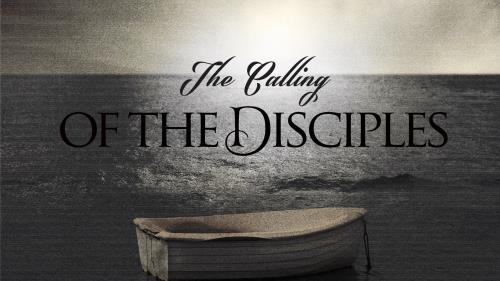-
Gone Fishing
Contributed by Alison Bucklin on Mar 24, 2023 (message contributor)
Summary: What did the disciples do after Jesus' miraculous resurrection? They went fishing! But this passage teaches us that it’s okay to get on with our lives while waiting for Jesus to make it clear what it is we are to do for him.
I’ll bet not one of you can tell me exactly what happened to the disciples after that first Easter morning, and in what order. And it’s not surprising. I would have had a hard time putting together a chronology of events if I hadn’t had to preach on the subject, and even then there’s a little confusion over exactly in what order things happen after the resurrection. Of course that’s not surprising, considering that their world has been completely turned upside down, but I think I’ve managed to put together all the gospel accounts in a way that makes sense even if I can’t swear to its accuracy.
Matthew reports that Jesus said to the women who went that morning to the tomb to tell the disciples, “go and tell my brothers to go to Galilee; there they will see me.” [Mt 28:10] Matthew doesn’t say anything about any meetings in Jerusalem, and though Mark mentions meetings, he’s not specific about where they occur. But Luke reports about two of Jesus’ followers meeting him on the road from Jerusalem west to Emmaus, and then on the same day Jesus appears to the disciples in the upper room in Jerusalem. John adds the story of “doubting Thomas” at a second meeting a week later.
But finally there they are in Galilee. John lists Peter and John and James, Thomas and Nathaniel, and two others. My guess is that the two others are Philip and Andrew; Andrew because he is Simon’s brother, and Philip because he is Nathaniel’s friend, the one who brought him to the Lord at the very beginning when they were both still following John the Baptist. And they’re all Galileans: Simon and Andrew, James and John are all fishermen from Capernaum right on the shores of Lake Tiberias; Philip was from Bethsaida, right at the north of the lake, and Nathaniel was from Cana, a day’s walk to the west. Well, maybe Thomas wasn’t from there, we don’t know. My own personal opinion is that Levi the tax collector, Simon the Zealot, and the other disciples are in Galilee, too, certainly I can’t imagine any of them disobeying Jesus, but being city guys, weren’t quite so keen on going fishing. But imagine their state of mind.
Think about it. The most momentous event in the entire history of the world has just happened. The disciples have endured the double blow of betrayal and loss. They have mourned the death not only of their friend but of their dreams. They had probably not even started the process of pulling together the tattered remnants of their lives to reorient themselves to a world empty of their teacher and master, when suddenly the world turns upside down yet again. Jesus their rabbi had risen from the dead. They hadn’t lost him. It hadn’t all been for nothing. Jesus was the Messiah after all. There’s an even greater future ahead of them than they had ever imagined. Even Thomas, skeptical Thomas, has been convinced.
And what do they do? They go fishing.
Now, I realize that for many of you going fishing is a natural response to life’s little ups and downs, but really. Isn’t this just a little anticlimactic? Shouldn’t they be marking the occasion with a little more - ceremony, shall we say? Shouldn’t their lives show the effect of this radical dislocation?
A lot of commentators criticize the disciples for this. One describes the scene as one of ‘complete apostasy’ and the fulfillment of verse 16:32, when Jesus said “The hour is coming, indeed has come, when you will be scattered, each one to his home, and you will leave me alone.” Some even question whether this chapter really belongs in John’s gospel at all. "It’s unthinkable," says Barrett, "that they should just calmly go back to their old occupation as if nothing had happened." And others think this story was added later as a footnote by someone else, for some obscure reason we can’t understand. The story is really over, they say, with Thomas’s recognition of the risen Lord.
Well, I don’t criticize the disciples. I don’t blame them for going fishing; after all, they hadn’t gotten their marching orders yet. But I did go with the majority opinion on the most important point of the passage, which is Jesus’ conversation with Peter.
Everyone preaches on that part of the text. Who wouldn’t? "Simon son of John, do you love me more than these?" He said to him, "Yes, Lord; you know that I love you." Jesus said to him, "Feed my lambs." A second time he said to him, "Simon son of John, do you love me?" He said to him, "Yes, Lord; you know that I love you." Jesus said to him, "Tend my sheep." He said to him the third time, "Simon son of John, do you love me?" Peter felt hurt because he said to him the third time, "Do you love me?" And he said to him, "Lord, you know everything; you know that I love you." Jesus said to him, "Feed my sheep. [v. 15-17]

 Sermon Central
Sermon Central



